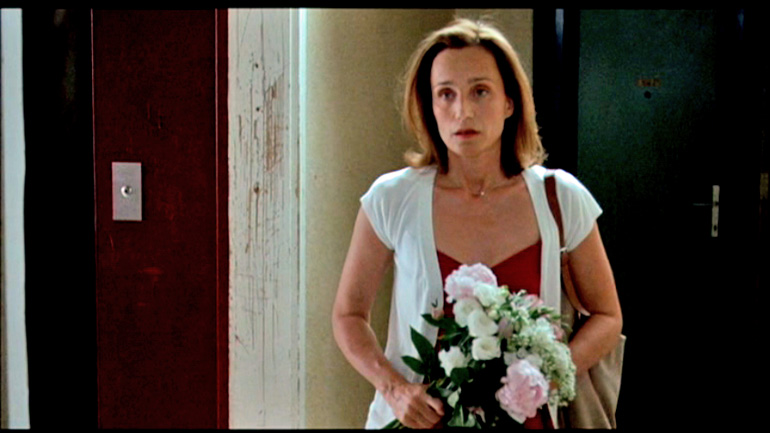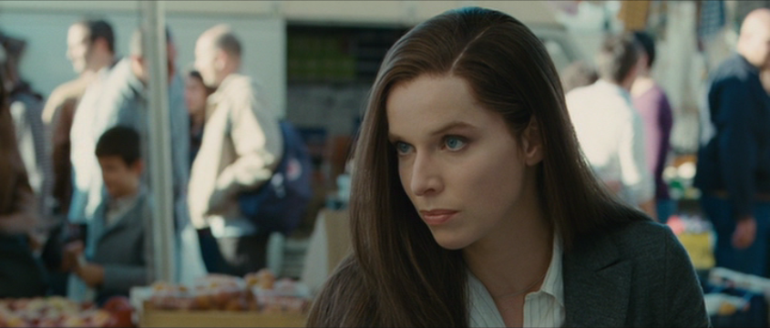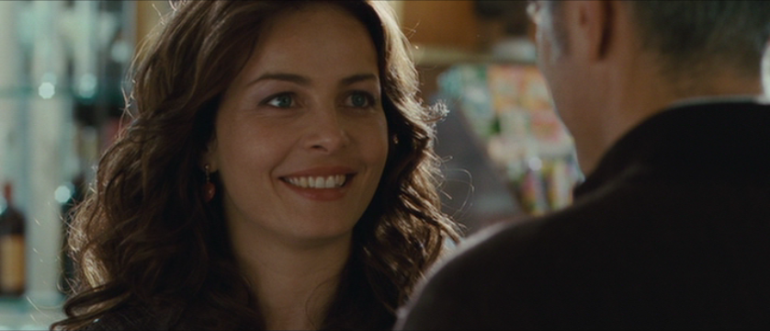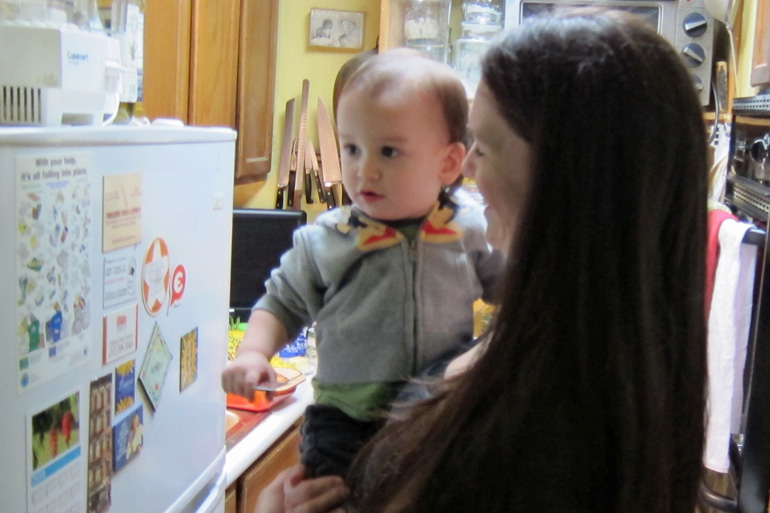Moviegoing (at home):
Partir
Friday, 15 July 2011
Friday, July 15th, 2011
Instead of going to the movies today, I watched one at home. Watching videos has become somewhat unusual in recent months. I don’t know why, but it hasn’t stopped me from buying them, especially the used ones at the Video Room that go for five dollars a pop — about a dollar more than a rental. Most of them are movies that I saw in the theatre, and I’ll watch them when I get around to it; but one of them, Catherine Corsini’s Partir (Leaving), I haven’t seen. Why did I buy a DVD of a film that I haven’t seen? Because, in this case, it stars Kristin Scott Thomas.
How many stars, if any, have had two such distinct film careers? It’s not that Ms Scott Thomas is bilingual, it’s that she plays entirely different sorts of women in her two languages. In the movie that she made after Partir (2009) — it was the next to be released, at any rate — she played John Lennon’s hyper-respectable Aunt Mimi. Other recent anglophone roles include the exasperated Mrs Whittaker, in Easy Virtue, and Anne Boleyn’s mother, in The Other Boleyn Girl. In the latter film, she is almost as upholstered as Carol Burnett in Went With the Wind. In French, however, the actress is both haunted and passionate.
Partir is the story of an adultery. Suzanne, the wife of a well-connected physician (Yvan Attal) in Nîmes, and the mother of two student-age children, falls in love with Ivan (Sergi Lopez), a laborer who has just come out of prison for “bricolage.” The affair comes as a surprise to her, because in the course of her marriage she has put sexual satisfaction out of her mind. Once reawakened, her longing spins her life out of control. Her first response to its terrifying power is to confess her love to her husband and to promise that “c’est fini,” but of course it isn’t. Her husband doesn’t want to let her go, and his way of showing his affection is to beat her up — and then to withhold financial support, blocking her savings account and having the laborer fired. Although we are persuaded that Suzanne and Ivan are very much in love, there can have been few depictions of star-crossed romance as dismal as this one. (At one point, the couple are forced to take jobs as migrant workers at a melon farm.) Suzanne’s response to hardship and humiliation is to dig in her heels, but the novelty, perhaps, of having to scrounge eventually inspires her to talk Ivan into doing something stupid.
Ms Scott Thomas, who looks hardly a day over forty, much less her actual age of 48, has rarely, if ever, played anyone as naive and impulsive as Suzanne; her characters usually crackle with intelligence. This gives a movie a strange power, because as you watch it you think, Even Kristin Scott Thomas can’t prevent this awful mess. Suzanne is not very gifted at prevarication, and her persistent belief that her husband will come round to see the justice of her position is almost stupid — as is the childlike pleasure that she takes in Ivan’s company. In her view, the fact that she can’t help loving him makes everything all right, and she suffers no pangs of conscience. She behaves like a passenger who has awakened to find that she has boarded the wrong train, an error that she tries to correct with steadfast determination. Her huaband is the wrong train. Her family is the wrong train. On two occasions, she argues that her husband owes her something for having raised his children. Ms Scott Thomas is radiant, but Suzanne is far from entirely sympathetic.
On the verge of the affair, Suzanne brings a big bunch of flowers to Ivan, whom she has inadvertently injured in a scene that would in almost any other movie be comic. As she walks down the corridor to his low-income apartment, she looks less like someone who might be making a mistake than someone who is unhappy to see someone else make a mistake. This is the moment for Suzanne to stop, but she has no will do so. It is also the moment when she’s about to find out what it’s like to touch Ivan and to let him touch her. Who wouldn’t be apprehensive? Suzanne has no idea of the force that she is about to unleash.
A few years ago, I believe, Ms Scott Thomas was invited to play the title role in Racine’s Phèdre with a French touring acting company. I wonder how much of that performance is on view in Partir. Suzanne is no Phèdre, but she acts with the Greek queen’s intense helplessness and brings everything crashing down around her. That’s what makes this umpteen-thousandth French movie about infidelity compelling. Notwithstanding some sweaty sex scenes, the experience that we share is Suzanne’s alone. Even when she hugs her lover, she is frighteningly solitary, as we all are, at the mercy of fate and circumstance. There are no lessons in this movie. There is only the stunning portrayal of an ordinary, middle-aged woman who has the dramatic good fortune to be played by Kristin Scott-Thomas.






